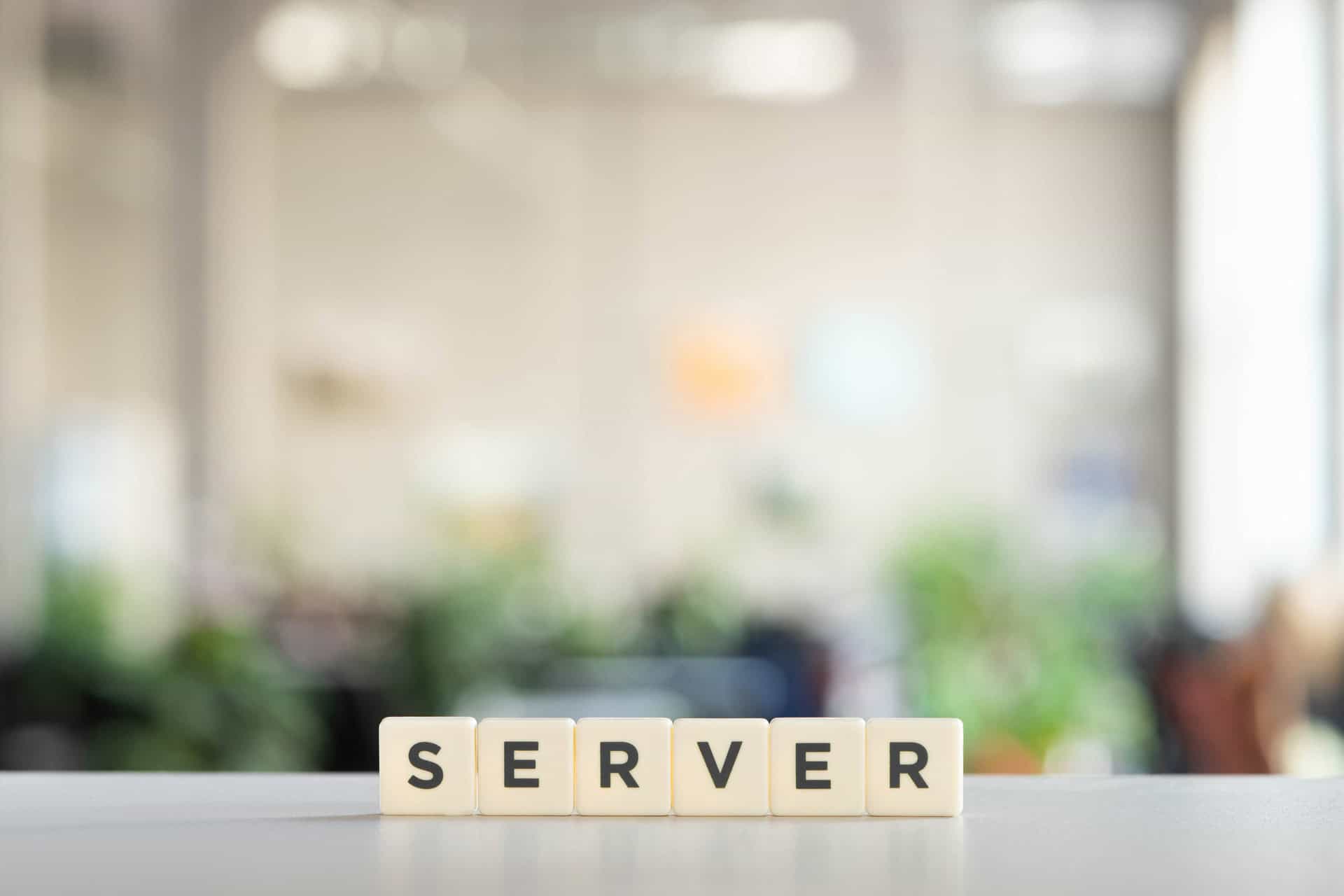Cloud servers and physical servers differ greatly in how they operate, scale, and fit the needs of a business. Here are the key areas where they differ:
- Access: Cloud servers provide remote access from anywhere, while physical servers require on-site connections.
- Backup: Cloud servers offer automated backups, whereas physical servers need manual backup solutions.
- Control: Cloud servers are managed by the provider, while physical servers give full control to the business.
- Cost: Cloud servers use a subscription model, while physical servers involve upfront hardware costs.
- Disaster recovery: Cloud servers feature built-in recovery options, while physical servers rely on custom plans.
- Flexibility: Cloud servers are scalable and adaptable; physical servers are fixed and hardware-dependent.
- Maintenance: Cloud servers come with zero maintenance on your part compared to an in-house server.
- Operating systems: Cloud servers offer pre-configured options; physical servers allow full customization.
- Performance: Cloud servers depend on internet speed; physical servers offer stable, dedicated performance.
- Scalability: Cloud servers scale easily; physical servers require additional hardware to expand.
- Security: Cloud servers rely on the provider’s security measures; physical servers enable on-site control.
- Setup time: Cloud servers are quick to deploy, while physical servers take longer to install and configure.
- Support: Cloud servers often include 24/7 support; physical servers depend on internal or third-party IT teams.
Cloud servers are a key part of modern IT solutions, offering businesses flexibility, scalability, and cost-effectiveness compared to traditional on-premises setups. By understanding their differences, you can decide which solution fits your business best.
What is the main difference between cloud and server IT?
The main difference between IT cloud solutions and server IT solutions is how data and resources are managed and accessed. Cloud solutions rely on internet-based infrastructure, offering flexibility and scalability, while server IT involves on-premises hardware, providing direct control and security. Each option suits different business needs and priorities.
Need tailored advice on a physical server vs cloud for your business?
As more businesses recognize the importance of cloud computing, understanding the right solution for your specific business is vital. We take the time to understand your specific goals—whether it’s improving document access and collaboration, supporting remote or hybrid work, or cutting down on hardware costs. Let us help you find the solution that works best for your business.
- Call us today at (800) 399-2648
- Or fill out our contact form to get started!
Explore our IT cloud solutions to find the perfect fit for your needs!
Cloud Servers vs Physical Servers in More Detail
When deciding between cloud servers and physical servers, understanding their differences is key to determining the best fit for your business. Let’s break down key aspects:
Access
Cloud server access allows users to retrieve data and applications remotely via the internet, offering seamless connectivity from any location with an internet connection. This is ideal for businesses with remote teams or multiple office locations.
Physical server access is limited to the on-premises setup, often requiring direct network connections for data and application retrieval. This setup can be more secure but less convenient for remote work or multi-location operations.
Backup
Cloud server backup is typically automated, with providers managing regular data backups and offering recovery options in case of loss. This minimizes the need for manual intervention and ensures business continuity.
Physical server backup requires businesses to implement and manage their backup processes, which can involve external drives or separate servers. While this gives full control, it also increases administrative overhead.
Control
Cloud server control is shared with the provider, meaning businesses rely on the cloud provider for maintenance and customization. This can limit the ability to tailor settings to specific needs.
Physical server control lies entirely with the business, allowing for complete customization of hardware, software, and security protocols. However, this requires dedicated IT expertise and resources.
Cost
Cloud server cost is typically subscription-based, offering predictable monthly expenses but potentially higher costs over time for extensive usage. It eliminates upfront hardware expenses.
Physical server cost involves significant initial investment in hardware and infrastructure but can be more cost-effective in the long term for businesses with stable needs. Maintenance and upgrades can add to ongoing expenses.
Disaster Recovery
Cloud server disaster recovery is often faster and more reliable due to off-site data storage and redundancy built into the provider’s systems. This minimizes downtime during crises.
Physical server disaster recovery depends on the business’s internal systems and processes, which may involve slower recovery times if backups or redundancies are insufficient.
Flexibility
Cloud server flexibility allows businesses to scale resources up or down quickly based on their needs. This is ideal for businesses with fluctuating workloads.
Physical server flexibility is limited to the hardware’s capacity, requiring costly upgrades or replacements to accommodate growth. This can be a challenge for rapidly expanding businesses.
Maintenance
Cloud server maintenance is handled by the provider, including software updates, hardware repairs, and troubleshooting. This reduces the need for in-house IT staff.
Physical server maintenance is the responsibility of the business, requiring ongoing attention to updates, repairs, and performance. This can be resource-intensive but offers complete oversight.
Maximize cost savings and efficiency with the right server choice. Let our IT cloud solutions guide you toward smarter, more affordable options.
Operating Systems
Cloud server operating systems are often chosen from a set of options offered by the provider, which may include popular choices like Linux or Windows. Businesses have less flexibility to customize beyond these options.
Physical server operating systems can be entirely customized to suit specific business applications and requirements. This level of control can be vital for specialized operations.
Performance
Cloud server performance depends on the provider’s infrastructure and internet connection speed, which may fluctuate under heavy usage. This can sometimes lead to latency issues.
Physical server performance is generally more stable since it relies on dedicated hardware. However, performance may decline over time without regular upgrades.
Scalability
Cloud server scalability is nearly unlimited, with resources easily adjusted through the provider’s platform. This is particularly beneficial for growing businesses or those with variable demands.
Physical server scalability is constrained by the existing hardware, often requiring new purchases or replacements to expand capacity. This can be a slower and more expensive process.
Cloud vs server security
When it comes to cloud servers, security is managed by the service provider, offering robust protections like encryption, firewalls, and regular updates. However, businesses must trust third-party vendors to secure their data and ensure compliance with regulations.
In comparison, physical servers provide direct control over security measures, allowing businesses to customize protections like access controls and data storage. While this control is advantageous, it also requires dedicated IT resources to maintain and safeguard against evolving threats.
Setup Time
Cloud server setup time is minimal, often allowing businesses to start operations within hours or days. This makes it a fast solution for urgent needs.
Physical server setup time can be lengthy, involving hardware procurement, installation, and configuration. This process can take weeks or months, depending on the complexity.
Support
Cloud server support is typically included in the provider’s service agreement, offering 24/7 assistance and troubleshooting. This ensures quick resolution of issues.
Physical server support relies on in-house or third-party IT teams, which may not be available around the clock. This can lead to slower problem resolution.
Considerations for Physical Server vs Cloud for a Small Business
- Budget: The pay-as-you-go model of cloud servers is beneficial for small businesses that want to avoid the upfront cost of physical server hardware. Physical servers, while requiring a larger initial investment, may suit small businesses with stable budgets and predictable IT needs.
- Scalability: Cloud servers allow small businesses to easily scale resources as they grow or face fluctuating demands, making them ideal for startups or seasonal businesses. Physical servers are less flexible and require additional hardware investment, which might be challenging for a small business with limited resources.
- Security: Cloud servers offer professional-grade security managed by the provider, which is useful for small businesses without dedicated IT staff. On the other hand, physical servers provide full control over security measures, which might appeal to businesses handling highly sensitive data like medical or financial records.
- Maintenance: Cloud servers eliminate the need for small businesses to manage hardware, as the provider handles all updates and repairs. Physical servers require ongoing maintenance and IT expertise, which could strain a small business with limited technical resources.
- Flexibility: Cloud servers are ideal for small businesses with remote teams or hybrid work models, as they allow easy access from anywhere. Physical servers are better suited for businesses operating entirely from a single location with no need for remote access.
- Disaster Recovery: Cloud servers provide automated backups and rapid recovery options, which can save a small business from costly downtime. Physical servers require manual backup systems, which might not be as efficient or reliable during a crisis.
- Setup Time: Cloud servers can be deployed quickly, making them a great choice for small businesses that need to get up and running fast. Physical servers have a longer setup time, which could delay operations for a small business with immediate IT needs.
- Performance: Cloud servers can deliver high performance but depend on stable internet connectivity, which might be a challenge for small businesses in areas with unreliable networks. Physical servers provide consistent performance on-premises, making them a solid option for businesses where internet speed is a concern.
- Control: Cloud servers are managed externally, which limits customization but reduces the burden on a small business’s IT team. Physical servers offer full control, making them a better fit for businesses that need highly customized setups or industry-specific configurations.
Secure Your Business with Cloud-Based Security at CMIT Solutions
We know how important it is to keep your business safe without sacrificing the convenience of the cloud. As more businesses move to cloud-based systems, new cybersecurity challenges emerge. That’s why security is at the heart of everything we do.
Our team stays ahead of evolving threats to deliver proactive IT solutions that protect your business while enhancing productivity. Let us help you embrace the benefits of the cloud with confidence.
- Call us today at (800) 399-2648
- Or fill out our contact form to get started!
Cloud vs physical server: which is right for you?
Choosing between a cloud server and a physical server ultimately depends on your business’s unique needs and goals. If you prioritize scalability, flexibility, and remote accessibility, a cloud server is an excellent choice, offering pay-as-you-go pricing and rapid setup. For businesses focused on control, customization, and on-site security, a physical server may be the better fit, though it requires a higher initial investment and ongoing maintenance.
We specialize in helping businesses like yours make informed IT decisions. Whether your focus is on enhancing collaboration, improving data security, or cutting costs, we can guide you toward the cloud services solution that best aligns with your objectives. Contact us today to find the right fit for your business.
Streamline your data management with expert advice on cloud versus physical servers. Contact us to learn how IT cloud solutions can transform your operations.



